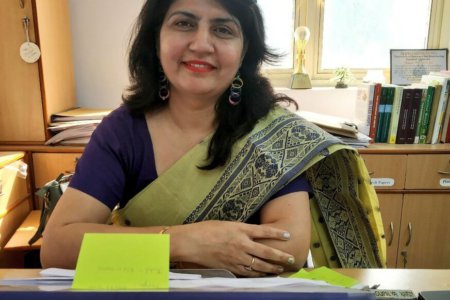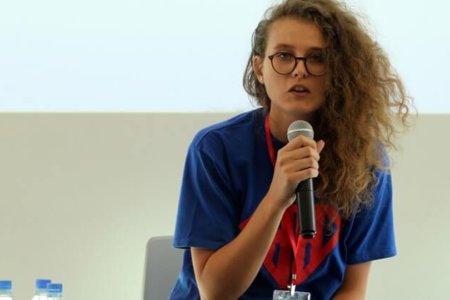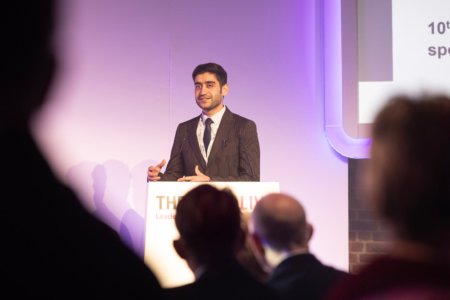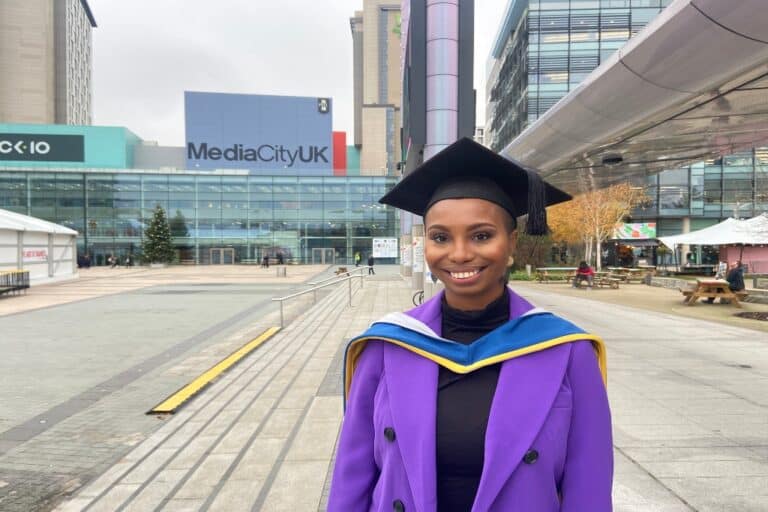
As a dyslexic herself, Yentel Le Roux understands the importance of making digital platforms accessible to all.
Today, with a bachelor’s degree in graphic design from Tshwane University of Technology and a master’s degree in Media Psychology in hand, her next goal is to create social impact.
Hailing from South Africa, Le Roux grew up struggling to choose between her love for art and her interest in science.
Thanks to her mother’s keen eye and support, she decided to pursue her artistic talent.
Then, her journey took a turn during a trip to Japan. This was when she discovered Media Psychology.
This newfound interest, coupled with experiences living in four countries, ignited her passion for design and accessibility.
To build a career in this field, she applied to Salford University’s MSc in Media Psychology.
Her decision proved fruitful. Today, armed with her background in graphic design, social media strategy and public relations, she now works as a UX researcher, focusing on human-centred design.
Her goal is to make digital experiences more accessible and user-friendly for everyone.

Yentel Le Roux has lived in over four countries. Source: Yentel Le Roux
1. How did you find out about the Chevening Scholarship?
Interested in Media Psychology, I began researching the subject. Unfortunately, this isn’t a popular area of study in my home country.
Recognising the pioneering strides made by countries, like the US and the UK, in this discipline, I knew that I needed to study abroad to succeed in this area.
Fuelled by this awareness and the desire to further my studies in Media Psychology, I began looking for fully-funded scholarships to help me achieve my goal of pursuing a master’s.
The challenge was daunting, but I was determined.
While I did pursue various scholarship opportunities on my own, it was actually a friend who, sensing my ambitions and potential, suggested I explore the Chevening Scholarship.
Taking this advice to heart, I decided to apply for the scholarship. To my delight, I was awarded this prestigious scholarship. I’m so thankful my friend nudged me to take that chance.
2. At Salford, you pursued an MSc in Media Psychology. Why did you switch to this field?
I first discovered Media Psychology back in 2017 while I was living in Japan.
As I immersed myself in the vibrant culture of a country so different from my own, my inquisitive nature led me to the field of Media Psychology.
My fascination with the stark disparities in advertising and print media between Japan, my home country, and Western nations sparked this change.
Questions popped into my mind: Why such divergence? Do their strategies yield optimal results? Can these design solutions transcend borders and be effective elsewhere?
Searching for answers, I researched. A lot.
I tried to understand the little details that distinguished the media of one culture from another — and how they impacted how we, as humans, behave.
It was a moment of revelation. Here was a field that had some answers to some of the big questions I had been asking. It felt tailor-made for someone like me, bridging science and art perfectly.
I felt glad that I didn’t have to choose one or the other anymore. Media Psychology was a field where my two passions could coexist.
3. What were the top highlights and challenges of your master’s degree?
My journey through the MSc Media Psychology programme at Salford University was a rollercoaster of highs and lows.
Nestled within the UK’s Media City, sharing grounds with industry giants like the BBC and ITV, Salford is a great place for anyone interested in UK media.
One of the highlights of my degree was the opportunity to research and design solutions for a brief given by the BBC.
Crafting solutions for a brief provided by such a big client was nerve-wrecking but thrilling.
Presenting my ideas to the client and receiving positive feedback was a defining moment for me. I saw that I had applied my new knowledge correctly. That boosted my confidence.
Meanwhile, being able to use Salford’s cutting-edge technology enriched my experience.
The university has many facilities, including those that conduct research such as eye tracking, neurostimulation, electroencephalography and virtual reality.
I found joy in mastering the ins and outs of eye-tracking technology. Later this would be a skill that became key in my dissertation focused on enhancing web accessibility for colour-blind website users.
I was motivated when I realised that my research could contribute to shaping the user experience industry.
However, every high comes with its share of challenges. The biggest hurdle for me was dealing with the culture shock. Despite my experience living abroad, I underestimated the adjustments required when moving to the UK.
Due to the Commonwealth ties and historical connections between South Africa and the UK, I assumed it would be an easy transition. It wasn’t.
But getting through the tough times in the early months taught me to be resilient and more adaptable. I grew a lot from this experience. 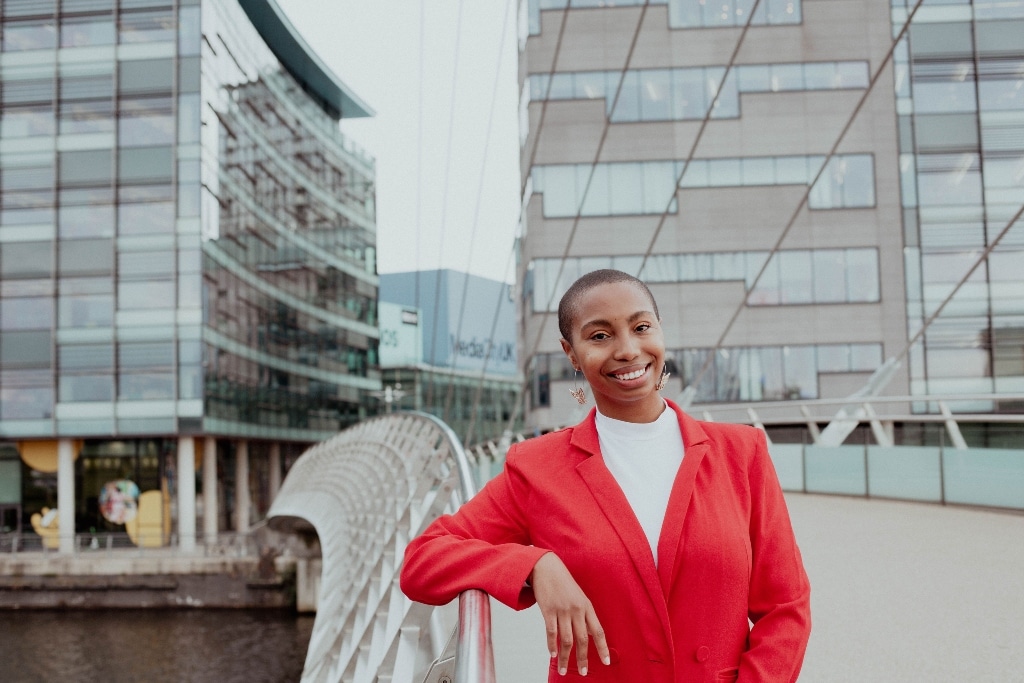
Le Roux has a goal to make digital platforms accessible to all. Source: Yentel Le Roux
4. In your opinion, what do you think are the top barriers hindering women in your country from pursuing a degree abroad? How can universities abroad help?
I believe there are many reasons why women don’t study abroad. Like me, many are unaware of the many scholarship programmes out there.
Those with children might feel a sense of guilt leaving their families. Most men don’t feel as badly about this.
Financially, even if they apply for scholarships, there are still many small costs involved in the application process.
One solution could be universities abroad partnering with South African institutions to create unique exchange programmes that take into account these issues and women’s interests.
5. How has your UK degree impacted your career?
In South Africa, Media Psychology is still not very well-known. It’s an emerging field. I often have to pave my own way, but this curiosity-driven journey has been rewarding.
It has pushed me beyond what I thought were my limits and has been incredibly beneficial for networking and personal growth.
6. What do you think is the greatest barrier women face in STEM? Why? And what advice do you have for someone trying to overcome this limitation?
The greatest barrier is the lack of representation, especially in leadership roles. When you don’t see people like you in those positions, it can be discouraging.
Not having role models can be disheartening. And it also means you don’t have people to turn to for help and mentorship. Without a support network that understands what women in STEM need, it’s hard for young women to go at it alone.
My advice would be to be proactive in seeking out opportunities, creating networks, and, most importantly, being vocal advocates of what you’re capable of.
Instead of waiting for an invitation, recognise that you have the power to break through the glass ceiling. If you don’t see the representation you want, become that representation.
7. What do you think is your greatest achievement as a woman in STEM?
My proudest achievement is giving back. I serve as a mentor for Step 1,2,3, and I take pride in our annual virtual STEM summer camp. Step 1,2,3 is an NGO that helps students do better academically and hone skills valued by employers.
The camp features a diverse curriculum spanning robotics, coding, technology, leadership, trademark law, financial literacy and mental health.
Witnessing young campers from the US and South Africa engage in creative, intuitive, and scientific problem-solving fills me with joy. Their enthusiasm and readiness to break barriers in the STEM field are truly inspiring.
8. As a Bold Fellow, you run workshops with schools, community groups, and organisations. Can you describe three activities you’ve participated in that were the most meaningful to you, please?
As a Bold Fellow, I facilitated workshops with several schools, community groups and organisations.
At the Johannesburg Junior Council, I witnessed the exchange of different perspectives among these young leaders was a powerful experience.
At Eersterust Secondary School, I learned the impact of believing in youth potential.
And at Pretoria High School for Girls, my alma mater, it felt so good to see girls enjoy the freedom of expression during our workshop








